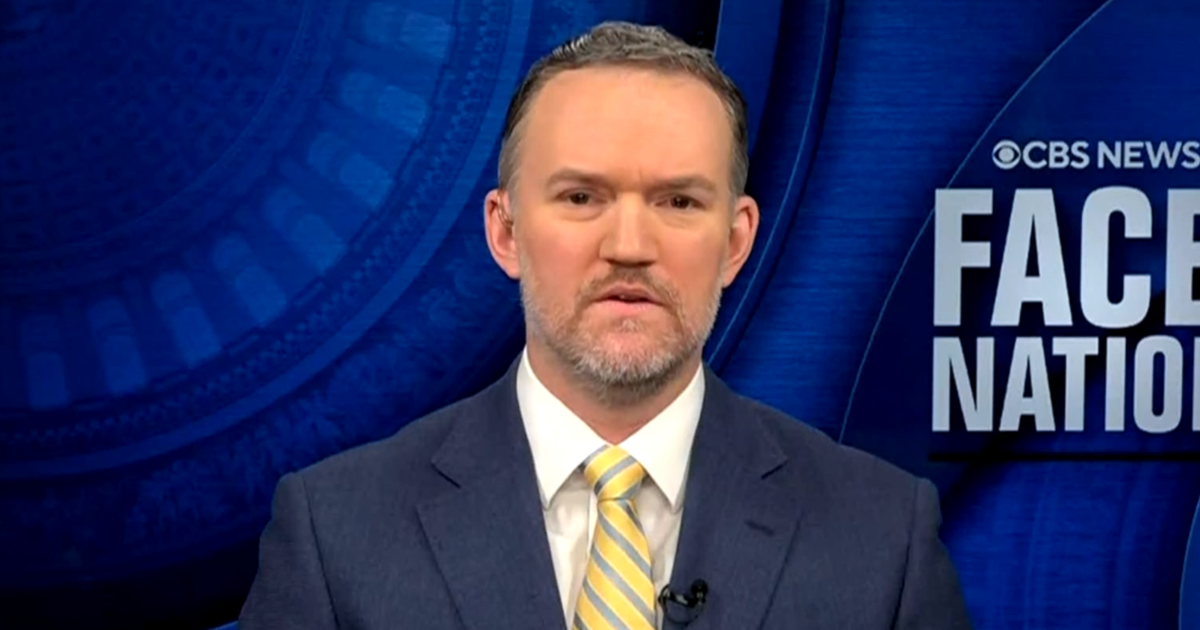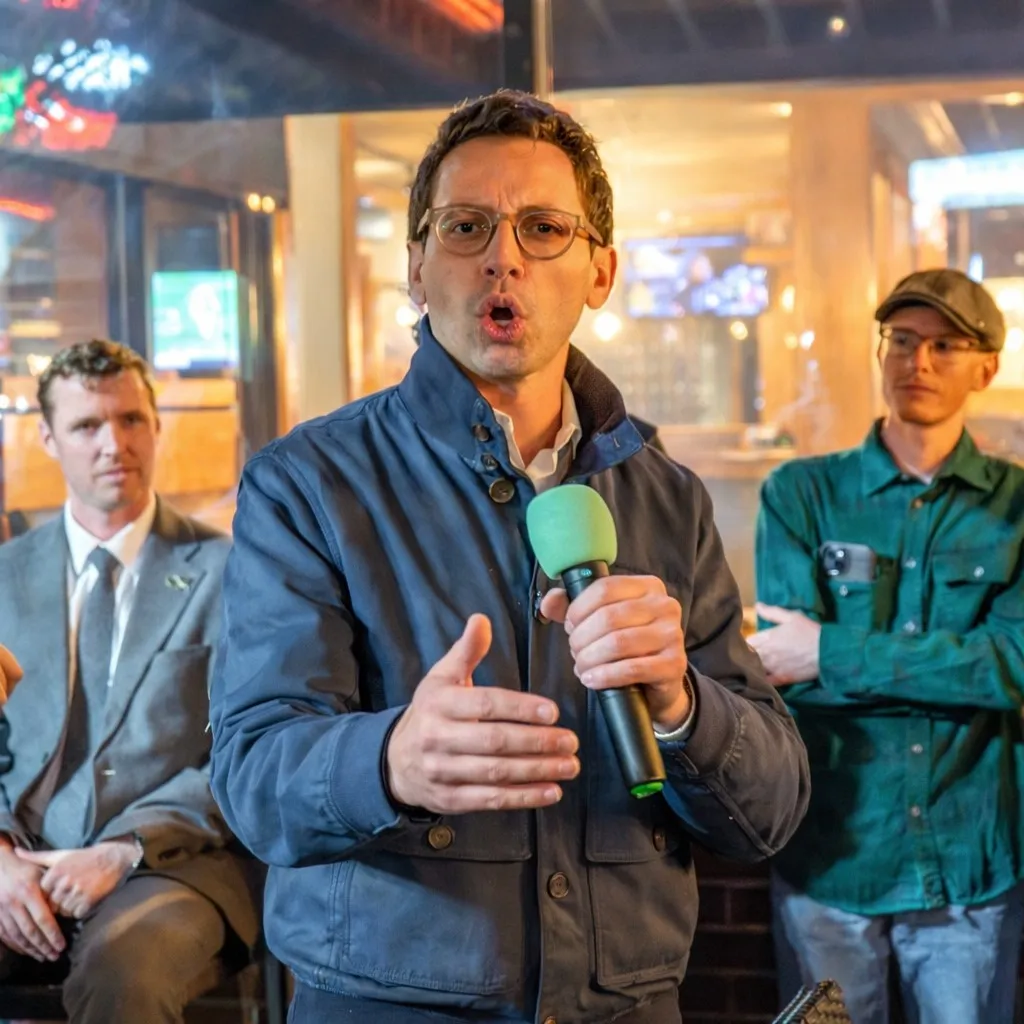Transcript: FEMA administrator Deanne Criswell on "Face the Nation with Margaret Brennan," Sept. 29, 2024
The following is a transcript of an interview with FEMA administrator Deanne Criswell on "Face the Nation with Margaret Brennan" that aired on Sept. 29, 2024.
ROBERT COSTA : Welcome back to Face The Nation. We turn now to the devastation of Hurricane Helene. She made landfall in Florida early Friday and swept through southeastern states. The damage has been enormous in terms of the death toll and loss of homes and businesses. FEMA Administrator Deanne Criswell joins us now for an update on the recovery efforts. Administrator, thanks for being here. What can you share about the latest death toll from this devastating hurricane?
FEMA ADMINISTRATOR DEANNE CRISWELL: Good morning, Robert. Right now I'm here in Florida, and I believe yesterday, as I traveled with the governor to assess damages there, he accounted for 11 deaths here. But I would refer to the states for the specific numbers, because there's- they're the ones that are tracking this. But what I can tell you is we are getting reports of multiple fatalities across the five states
ROBERT COSTA: Which regions have been hardest hit?
ADMINISTRATOR CRISWELL: So this has been, Robert, a true multi-state event we have seen, I have seen, my team on the ground has seen significant impacts in Florida, Georgia, South Carolina, North Carolina and Tennessee. I saw the impacts here in Florida yesterday. I'm traveling to Georgia today, so I can see the impacts firsthand there. And I'll be in North Carolina on Monday, so I can assess the impacts there. But we're hearing significant infrastructure damage to water systems, communication, roads, critical transportation routes, as well as several homes that have been just destroyed by this. So this is going to be a really complicated recovery in each of these five states that have had these impacts.
ROBERT COSTA: And where has the flooding been worse? Where do you see real problem areas still at this moment?
ADMINISTRATOR CRISWELL: Well, here in Florida, they had up to 15 feet of storm surge in Taylor County, which is where I was at with the governor yesterday. These are record storm surges across the Big Bend area. I heard reports of up to nine feet of storm surge in the St Pete Beach area in North Carolina. We're still in active search and rescue mode. They're still having flooding issues and landslides, and so we're still actively working on search and rescue missions up in North Carolina, we've had significant wind and flooding damage again in all five of these states.
ROBERT COSTA: Was North Carolina in particular, prepared for this level of flooding? Have they ever dealt with anything at this magnitude?
ADMINISTRATOR CRISWELL: This is really, Robert, historic flooding up in North Carolina, especially this western part of North Carolina. I don't know that anybody could be fully prepared for the amount of flooding and landslides that they are experiencing right now, but we have had teams in there for several days. We're sending more search and rescue teams in there. Water is a big concern right now as well, and so we have sent bottled water in, but we also have the Army Corps of Engineers that's getting ready to start assessments today to see what we can do to help get those water systems back online quickly. And we're also moving in satellite communications, Starlink satellites, into the area to help facilitate the lack of communication that part of the state is experiencing.
ROBERT COSTA: What are you seeing in terms of health consequences from this hurricane, in terms of water quality, access to food, access to medicine?
ADMINISTRATOR CRISWELL: All of it is having really significant impacts. We know that many healthcare systems have been impacted, and so we also have health care assessment teams that are assessing the hospitals and the ability to support the people that are experiencing impacts from this storm. There are multiple boil water notices across all five states, and so that's why we're bringing in teams to help assess those water systems, to see what we can do to get them back online as quickly as we can, but we're also, again, bringing in the commodities
ROBERT COSTA: How do you conceptualize this storm in the broader question of climate change?
ADMINISTRATOR CRISWELL: Well, I think what we're seeing, Robert is, you know, this storm took a while to develop, but once it did, it developed and intensified very rapidly, and that's because of the warm waters in the Gulf and so it's creating more storms that are reaching this major category level than we've seen in the past. It's also creating greater amounts of storm surge in the coastal areas. It's creating greater amounts of rainfall as it moves up north. And so in the past, when we would look at damage from hurricanes, it was primarily wind damage, with some water damage, but now we're seeing so much more water damage, and I think that is a result of the warm waters, which is a result of climate change.
ROBERT COSTA: And here in Washington, the question now turns to resources. Does FEMA have what it needs to deal with this level of storm, this moment in history, with this kind of hurricane?
ADMINISTRATOR CRISWELL: Well, we absolutely have enough resources from across the federal family. FEMA is one part of the team, and we have the ability to bring in all of our team members from many other federal agencies to support this response. As we move into recovery, we can pivot those resources to help support that recovery portion. Recovery can be complicated. These five states are going to have very complicated recoveries, but we will continue to bring those resources in to help them, technical assistance as they're trying to identify the best ways to rebuild.
ROBERT COSTA: Administrator Criswell, we appreciate your time and best wishes to all of those helping those in need in this area of the country. A tough moment, we'll be right back.



